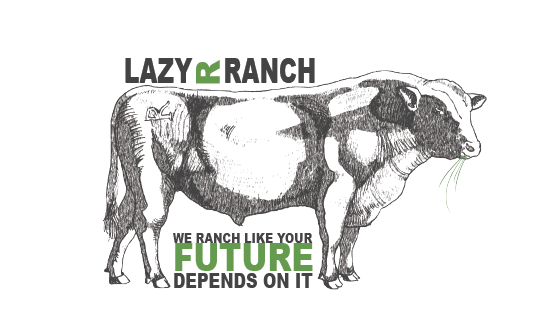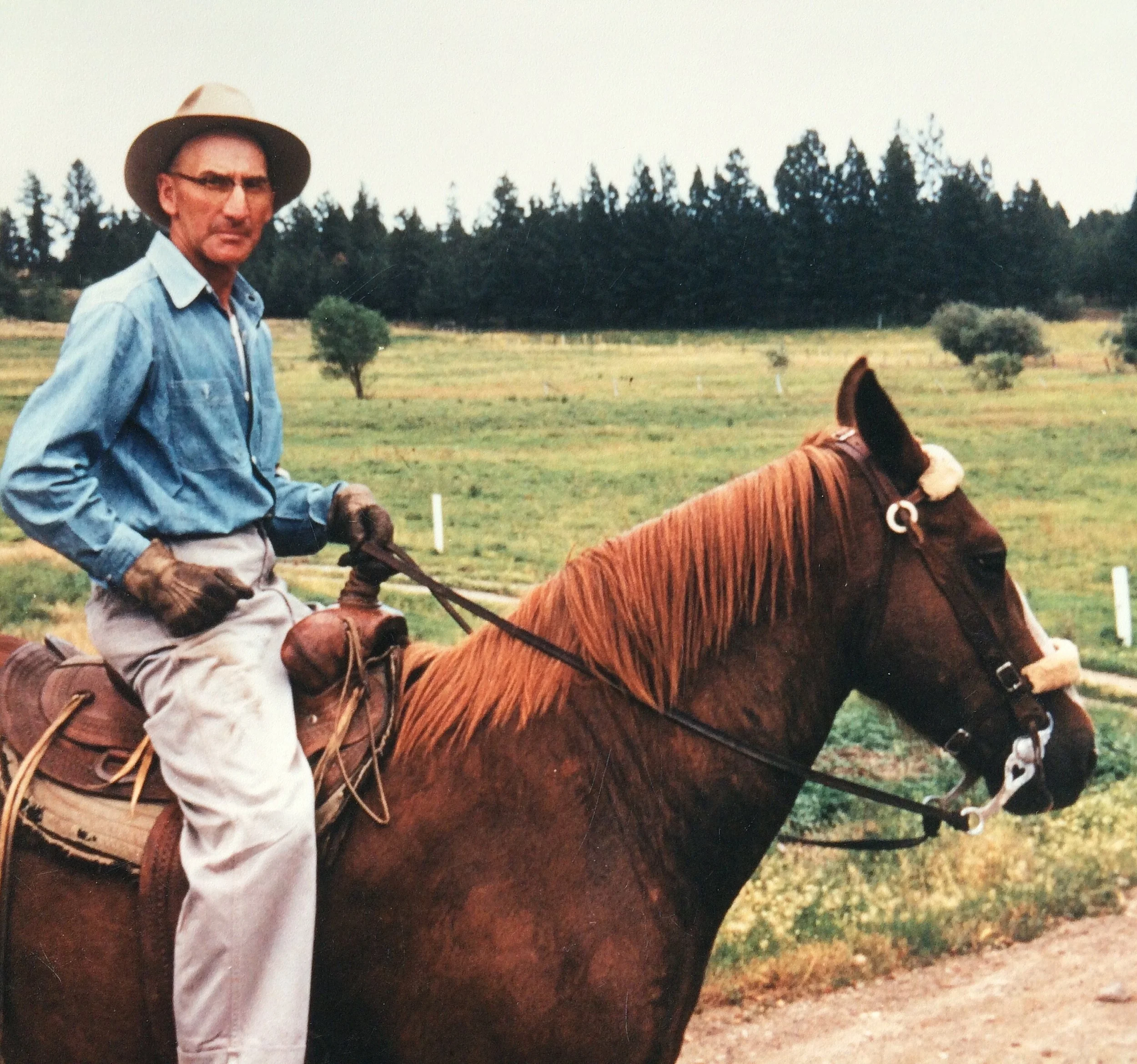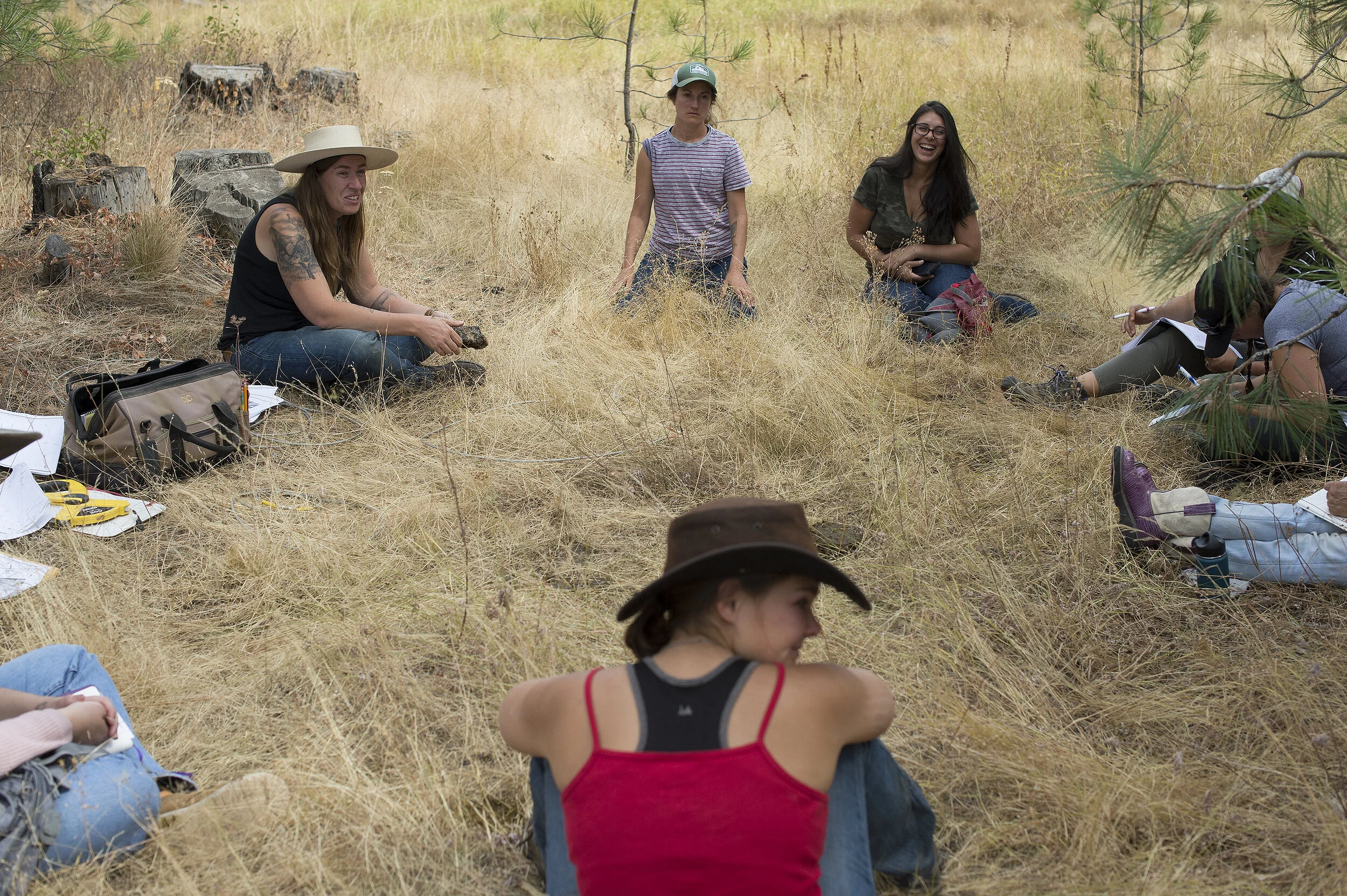The Land’s History
Long before Lazy R Ranch, this land was shaped by the colossal floods of the Ice Age, leaving behind the channeled scablands and the rich soils that sustain us today. Camas meadows once flourished here, providing food for the Indigenous Plateau peoples, including the Spokane Tribe, who have gathered, stewarded, and honored this place for thousands of years.
The land carries its own memory. It has always been a place of meeting, of food, and of care—tended by generations who understood that good stewardship is not about ownership, but about relationship.
Nestled in the channeled scablands ponderosa forest and rich sub irrigated meadows of the West Plains, just west of Spokane, WA., the ranch is part of the ancestral homeland of the Spokane Tribe. In the early 19th century, white fur trappers began to settle the area. Following an influx of prospectors to the area following the California Gold Rush, conflict began to break out between settlers and indigenous people. Smallpox and other disease further weakened the Spokane people and in 1881 they were relocated by the United States Government to the Spokane Reservation northwest of Spokane. Like most of the federal government’s dealings with indigenous people, the relationship between the United States and the Spokane Tribe was fraught with violence and deception. We encourage you to take the time to watch this short documentary about the battles of 1858 that led to the removal of the Spokane Tribe from most of their historic homeland. The battle of Four Lakes occurred just seven miles from where the Lazy R Ranch is located today.
Today the Spokane Tribe now lives on 159,000 acres in Wellpinit, Washington, and continues to contribute to the larger community of Spokane, Washington. The Spokane Tribe seeks to preserve, protect, manage and enhance the long-term sustainability of the natural resources for present and future generations through an interdisciplinary process by developing and implementing best management practices. Learn more about the Spokane Tribe, the Upper Columbia United Tribes, and Spokane’s Salish language immersion school.
A Chapter in Stewardship
After losing their small farm in Endicott, WA during the Great Depression, Earl, Louella, their three children, and their small herd of milk cows established the Lazy R Ranch in 1937. They rented the land and weathered the depression by selling milk in Spokane, while Louella worked as a full time cook at Lakeland Village, a nearby institution for developmentally disabled people. Her cooking was legendary and was the center of every family gathering. Their son Gene was later able to buy the ranch as an adult. Gene, having grown up milking all those cows by hand, happily converted from milk cows to beef in 1950, the year before his son Maurice was born. Gene took a brief hiatus from cattle to go back to school and finish his degree, and went on to work for the United States Department of Agriculture. After Maurice moved back home to the ranch in 1981, he and his wife, Ellen, put their savings into 20 heifers (with a little help from Gene) with the idea that he would pasture them over the summer and sell them in the fall. The bottom dropped out of the market that fall, so he bought a bull instead. We’ve been chasing cows ever since.
Maurice as a baby with the previous 3 generations of Robinettes: Great-grandpa Tom, Grandpa Earl, and Maurice's dad Gene.
When the Robinette family came to this land, they joined a lineage of caretakers who worked with the soil, the grasses, and the cattle. Lazy R Ranch became one of the many threads in the story of this place—a chapter defined by both learning and unlearning.
The current 3 generations on the Lazy R: Ellen, Matt, Jacqueline, Beth, Audrey, and Maurice (L to R). Learn more about our family here!
The Ranch Today
In 1996, we adopted the principles of Holistic Management, which is both a framework for truly sustainable (triple bottom line) decision making and a method of pasture management that allows us to mimic the natural symbiotic relationship between grazing animals and grasslands. In that time, we have seen a dramatic shift both in the health of the land, and in the health of our business. We now direct market 100% of our beef. Every animal born here on the ranch ends up on the table of someone in our community. Today, Maurice and his oldest daughter, Beth, operate the ranch together. None of this would have been possible without the tireless work of the many strong women who have helped work the ranch, whether feeding harvest crews, working a town job to keep things afloat, or involved hands-on in day to day management.
Under Beth Robinette’s leadership, Lazy R Ranch is embracing the next chapter of land stewardship. Beth brings together regenerative agriculture, social equity, and community education to create a ranch that is as much about people as it is about cattle.
We raise grassfed beef using rotational grazing that restores soil, supports biodiversity, and produces healthy food. We’re building partnerships that invite others into this work, from Cowgirl Camp to Holistic Management trainings and programs with Hunter’s of Color and the Washington Young Farmers Coalition.
This is not just a ranch—it’s a gathering place for land stewards, learners, and leaders who believe that how we tend the land can heal the future.
Our Commitment to Equity
We know that the story of American agriculture has often excluded Black, Indigenous, queer, and other marginalized communities. Lazy R Ranch is committed to being part of a more just and inclusive future.




